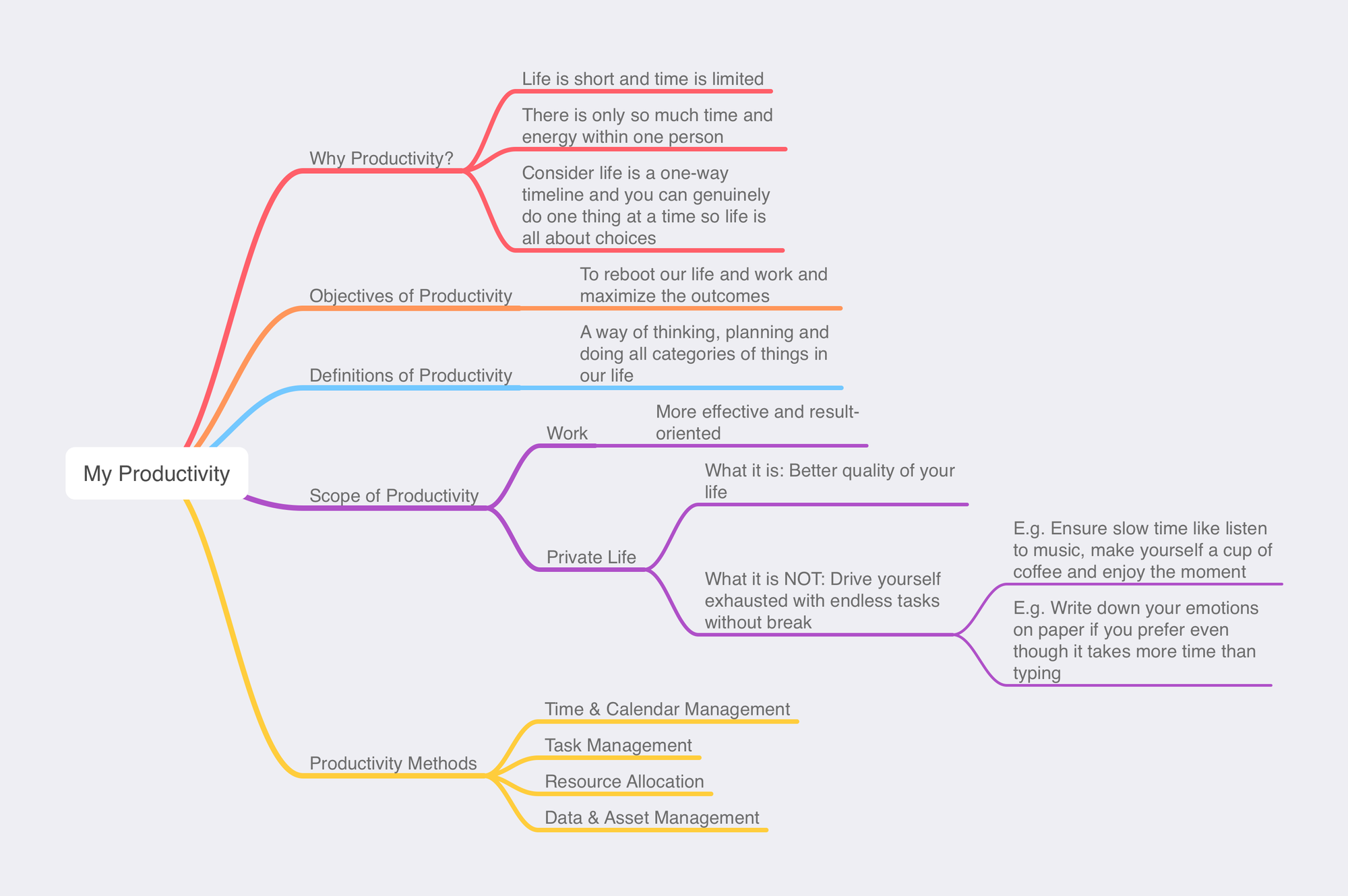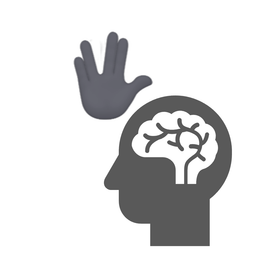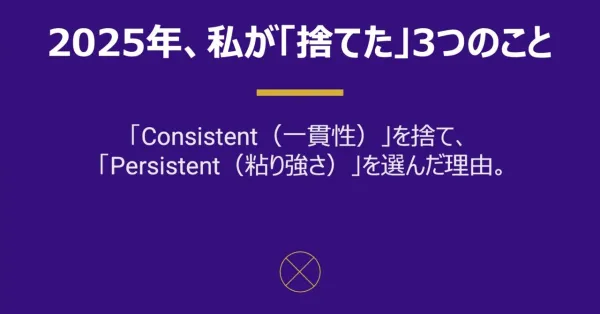Why Productivity? 選択力としてのプロダクティビティ
プロダクティビティに関する誤解について考えてみた。プロダクティビティそのものを再定義し、「価値観に基づく取捨選択」と解釈する。 Available in 🇯🇵日本語, 🇬🇧English.

選択力としてのプロダクティビティ
—「生産性」の再定義と、価値観に基づく取捨選択
プロダクティビティ(生産性)が自分のテーマになったのは、大学時代に時間の使い方に悩んだ経験がきっかけだった。
2つの学位を勉強しているのでそれぞれの宿題・論文や試験勉強、バイト、サークル、ブログの更新とメインテナンス、友人との時間。やりたいことはたくさんあるのに、気づけば何も進んでいないような感覚に陥っていた。
「どうすれば、限られた時間の中で、自分にとって意味のあることに集中できるのか?」
そんな問いが、ずっと頭の片隅に残っていた。
生産性という言葉に違和感があるあなたへ
「もっと効率的に」「もっと成果を」——そんな言葉に、どこか息苦しさを感じたことはないか?
最近、知人から「何でも生産性ではないよね」と言われる場面が何度かあった。
その言葉に引っかかり、改めて考えてみた。
生産性を求めるのは間違いなのか?
そもそも、自分が求めている生産性とは何なのか?
そこで、「私のプロダクティビティ(My Productivity)」というテーマで、ロジカルシンキングのテクニックを駆使して整理してみた。
生産性という言葉が、いつの間にか「成果主義」や「効率化」と同義になってしまった。「効率よくたくさんのことをこなす」というイメージがつきまといがち。
でも本来、プロダクティビティとは「自分にとって意味ある時間を選び取る力」ではないだろうか。
その再定義から、私の選択設計は始まった。
プロダクティビティは価値観を起点にした「選択設計」である
やることを詰め込むのではなく、やることを選び取る。
「ストレス解消について」の投稿に言及したが、「考えていること」「言っていること」と「やっていること」の三位一体はストレス解消のカギである。言い換えると、価値観と行動が一致した状態でもある。
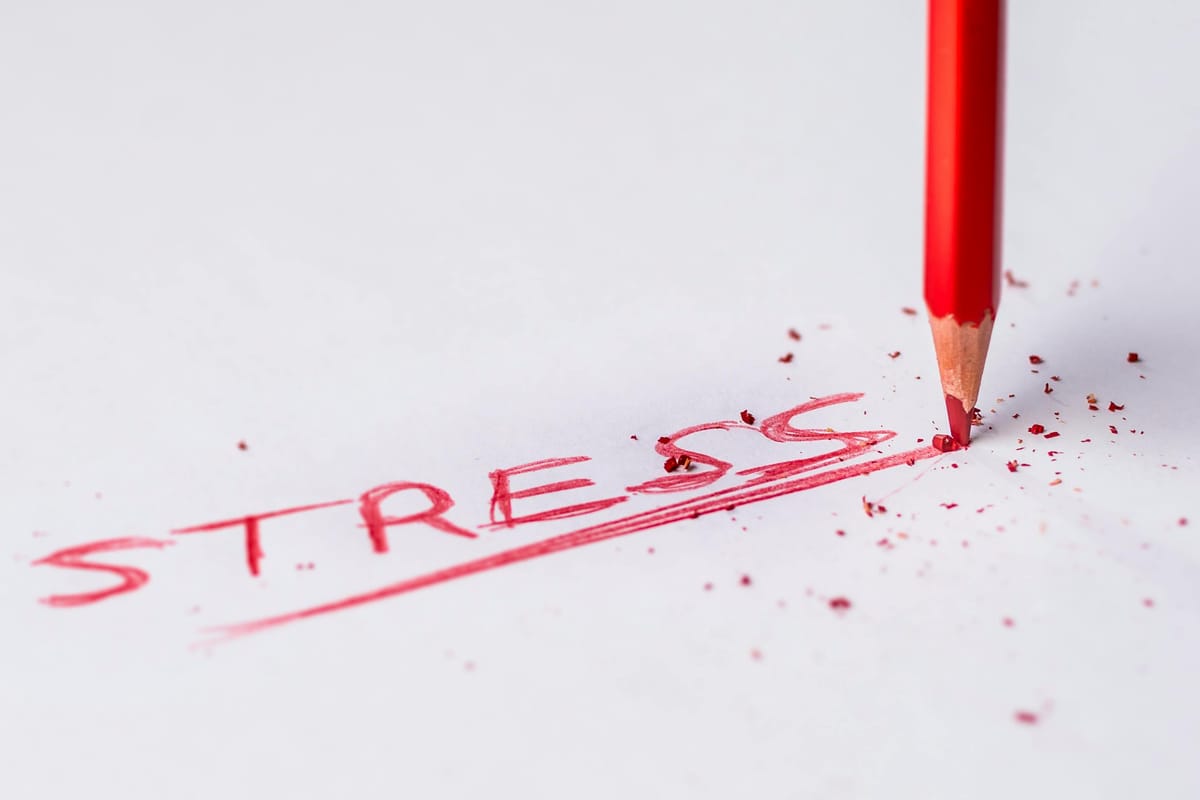
「自分にとって重要なこと」に時間を使い、「重要でないこと」に費やす時間を最小限にすることを指す。
価値観が明確でないと、関心のない業務や責任に埋もれ、無意識に力の入らない対応をしてしまう可能性があり、他者の期待や評価に過度に左右されやすくなる。
自分の価値観を把握することで、他人の価値観や意見に過剰に反応しなくなる。もちろん、他者の意見を無視するのではなく、「意味づけの重みを下げる」ことが目的。
一方で、望むかどうかに関係なく対応が必要な事柄(支払、家事、学校の宿題、仕事上やらざるを得ないタスクなど)は常に存在する。「三位一体を目指す」とは、それらを排除することではなく、意味ある活動に意識と時間を集中させること。
意味ある時間から得られる充足感が、意味の薄い作業の負荷を相殺する。
何に価値を置くかを明確にすることで、キャリア選択、ボランティア活動、断る判断にも一貫性が生まれる。
時間は有限の資産であり、追加取得はできない。
その使い方が、自身の価値観を最も雄弁に語る。
つまり、プロダクティビティとは「人生の優先順位を意識的に選び取る技術」であり、時間の使い方を「設計」することだと私は考える。
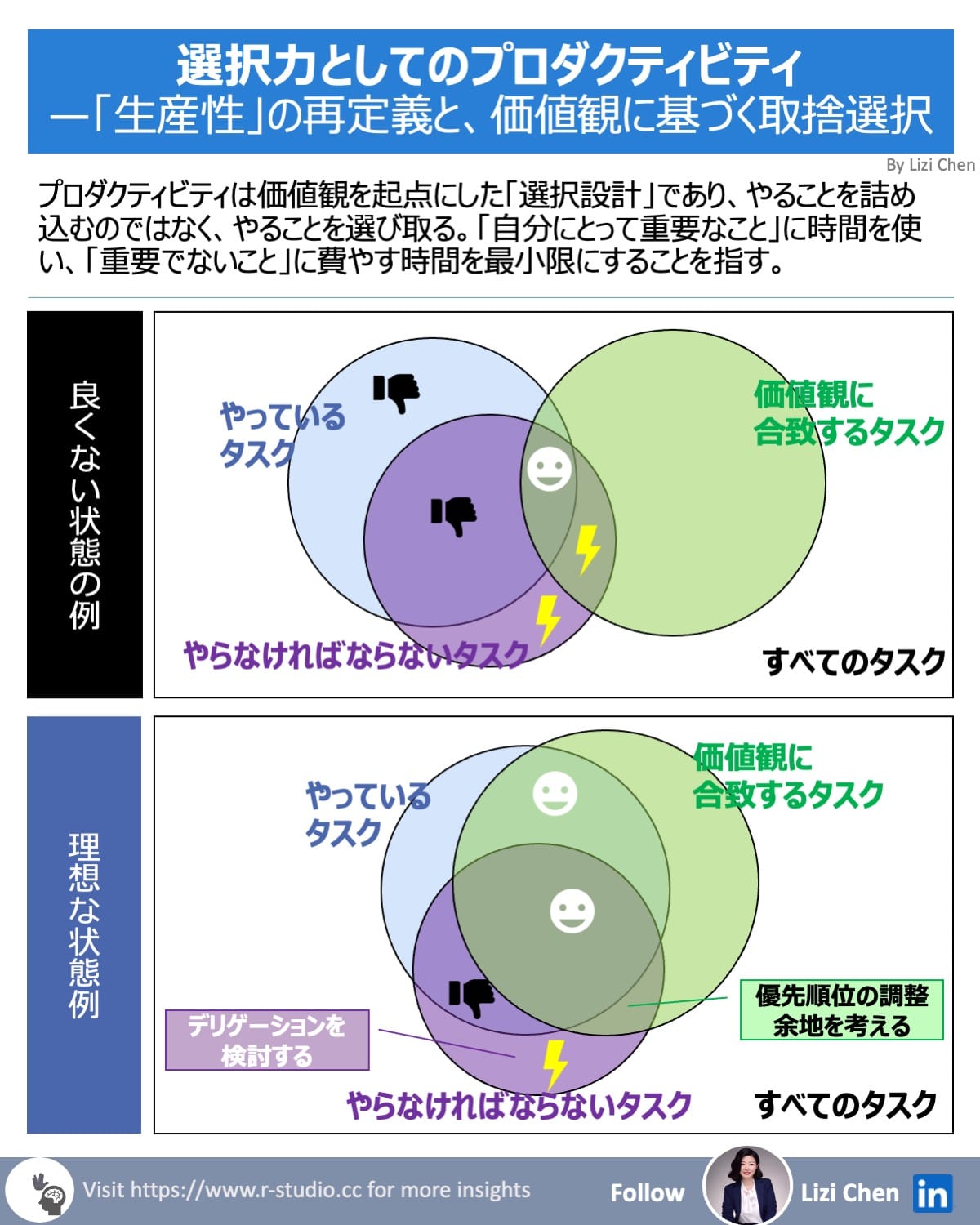
この投稿をプロダクティビティシリーズの第一弾にしたい。次はHow to編「本当に大切なことを選び取る技術」についてまとめよう。
Productivity as a Skill of Selection
Redefining Efficiency Through Personal Values
Why Productivity Became My Personal Theme
My interest in productivity was sparked during university, when I struggled with how to manage my time effectively.
Balancing two degree programs, assignments, exams, part-time work, club activities, blog updates, and time with friends—I had many things I wanted to do, yet often felt like I wasn’t making progress.
This led to a persistent question:
“How can I focus on what truly matters within the constraints of limited time?”
That question lingered in the back of my mind for years.
For Those Who Feel Discomfort with the Word “Productivity”
Have you ever felt suffocated by phrases like “be more efficient” or “deliver more results”?
Recently, several people have said to me, “Not everything has to be about productivity.”
That comment struck a chord and prompted me to reflect:
Is it wrong to pursue productivity?
What kind of productivity am I actually seeking?
To explore this, I created a mind map titled “My Productivity” to clarify my thinking.
Over time, the term “productivity” has become synonymous with output-driven efficiency—doing more, faster.
But I believe productivity should be redefined as “the ability to consciously choose time that holds personal meaning.”
That redefinition became the foundation for how I design my choices.
Productivity Is a Value-Based Design of Choices
It’s not about cramming in more tasks—it’s about choosing the right ones.
In the post "Stress Relief" I talked about the definition of stress and how to deal with it.
The essence of stress, as I see it, lies in the misalignment between what we think, what we say, and what we do.
This disconnect creates mental strain, which ultimately manifests as stress.
Achieving alignment across thought, speech, and action is key to effectively reducing stress.
Achieving this alignment means intentionally investing time in what truly matters and minimizing time spent on low-value tasks. Without clarity on personal values, professionals risk becoming overwhelmed by responsibilities that lack meaning, leading to disengagement and underperformance.
Anchoring decisions in core values reduces susceptibility to external expectations and helps prioritize with confidence. This isn’t about ignoring others’ opinions, but about reducing their undue influence.
While certain obligations are unavoidable, fulfillment comes from maximizing time spent on meaningful work. That sense of purpose can offset the burden of routine tasks.
Understanding what matters most enables better career choices, clearer boundaries, and more strategic commitments. Since time is a finite asset, how it’s allocated reflects one’s values and leadership maturity.
Time is a finite asset—we cannot borrow more.
How we spend it speaks volumes about what we value.
In essence, I see productivity as the skill of consciously designing life’s priorities—a deliberate architecture of how we use our time.
Overview of My Productivity
